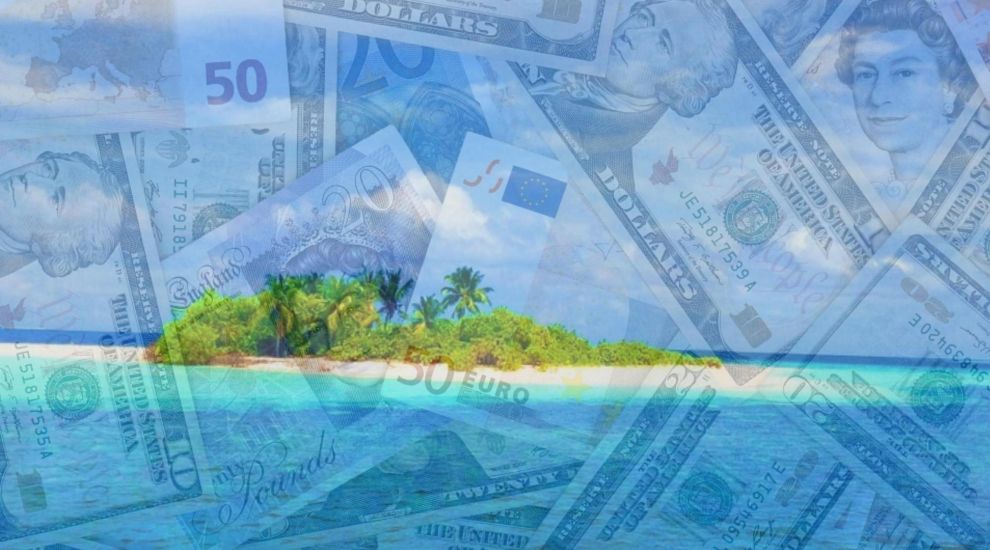


Jersey’s Viscount once 'owned' a luxurious hideout embedded into the side of a mountain. As if it couldn’t get any better, it was based on a sun-soaked, private Caribbean island.
But it wasn’t the blue-skied picture of perfection it seemed: for one, it was really the property of a US criminal who’d made his millions in illegal online gambling. Secondly, it was suffering from coastal erosion, so the Viscount was forced to figure out getting a protective wall put up – from over 4,500 miles away.
Maintaining properties that aren’t necessarily Jersey’s own is a very real consequence of helping foreign countries fight crime. It all starts when there’s a ‘saisie judiciaire’ – a Jersey asset freezing or restraint order.
“If we obtain a saisie over a house, and the roof starts leaking, the house is now in the ownership of the Viscount and he has to do something about it. If the drains pack up, he has to deal with that,” Andrew Belhomme, Crown Advocate and leader of the island’s Mutual Legal Assistance Operation within the Law Officers’ Department explains.
Pictured: The Law Officer's Department is based in Morier House.
It’s a small department – under 10 staff in total – but with international clout. It ensures millions of international criminal funds move away from the wrong hands and into the right ones each year. Last year alone, they handled 89 requests for help spanning every single continent to assist with investigations as varied as robbery, insider trading, forgery, kidnapping, drugs, murder, corruption and money laundering – that old chestnut.
While Jersey might be making strides in proving its commitment to the fight against illegal cash cleansing, the truth is that some funds made in the shade are still hidden on-island, often through complex trust structures. But it’s not something the Attorney General is tolerating. In fact, the island plays an active part in helping other jurisdictions weedle out the dodgy money stashers.
Normally, the process is triggered with a letter from the country in question’s Ministry of Justice, requesting evidence.
Often those requests will relate to tracking cash flow by obtaining records from Jersey finance companies, but could also involve telephone records. “If there’s been a murder in, say, Finland, and they have reason to believe the suspect has been in Jersey for a period contacting people... they might ask for records relating to this use.”

Pictured: Other jurisdictions sometimes ask the MLA team to get phone records from local telecoms providers.
If it’s the country’s first time liaising with Jersey, the MLA team will usually go and meet them at their London embassy to talk them through the complexities of getting the requested evidence. “We take the friendly approach. Some jurisdictions don’t, but we really do go out of our way to assist these countries.” It’s just one of many ways – they’ve also been invited by the UN to present courses in Armenia and Kazakhstan – they share their legal knowhow with other countries.
The MLA Department will then serve what’s known as a ‘production notice’ on a company or individual requesting this evidence – something that Advocate Belhomme recalls was a physical knock at the door in his more junior years, but now is most often a letter – unless it’s really serious.
Not all countries get their requests accepted – the island doesn’t want to get its hands dirtied in potentially “politically-motivated” investigations and will sometimes refuse at this stage.
“You look at the country and its reputation internationally. If it is a pariah state, that would immediately put you on alert, or if it was a country known to be particularly corrupt.”

Pictured: Jersey is predominantly involved in 'saisie judiciaires' - the seizing of money or assets.
More amusingly, requests can also be refused if deemed ‘de minimis’ – involving such tiny sums it’s not worth the effort.
The rule used to set prejudice in fraud cases at £2million, but that then lowered to the hundreds of thousands before being removed altogether some years ago. “It could be that the case in monetary terms is not great, but there could be a public interest element, such as if you’re defrauding a very small amount of money from elderly investors.”
If, on the other hand, the case involves filling up their tank and escaping before paying at a motorway service station or a conspiracy to sell on watered-down cow’s milk, it will probably get refused. Both of those were genuine requests, and certainly among the most “memorable.”
But you can’t always expect companies to cough up the docs straight after a production notice, nor can you expect a criminal – or the trustees holding their assets – won’t dispute a freeze on their funds. A Royal Court battle – sometimes years long – will often ensue, in which the Attorney General must state the case for producing the evidence, however ‘private’, or blocking their allegedly dodgy cash held in island accounts from flowing.
This will often mean calling in witnesses or representatives from other countries. One case they’re currently involved in linked with disgraced banker Robert Tantular, who was jailed by a Jakarta court for embezzlement, recently saw a party of Indonesian representatives travel to be present in court. “This part of it makes our job more interesting because we get visitors,” Advocate Belhomme says, adding that it’s another opportunity to showcase Jersey’s cooperative attitude.
Pictured: The Royal Court has played host to a varied cast of international characters as a result of the island's MLA work.
The case – as with most MLA cases – was important in another way: shaping Jersey’s laws. “Judgements have made us change our approach in some instances… The Tantular case changed the way we seize trust assets. It clarified that just because the defendant is a beneficiary of a Jersey trust, that is not enough for us to go in and seize the trust.”
Working hard on cases on behalf of other jurisdictions obviously comes at cost in both money and effort. While it usually pays off, the Department is currently hoping for new legislation to be scrutinised and passed by the States Assembly, giving the Attorney General immunity from paying legal costs if acting for another country.
“We’re no different to any other litigant. If we lose the defence to the challenge to a saisie, then we would find ourselves facing a hefty costs order. That shouldn’t prohibit us from providing assistance to overseas countries.”
Lucky, then, that Jersey has had a spate of success in recent years. It’s not only a good feeling, but can often result in a substantial injection into the island’s Criminal Offences Confiscation Fund, depending on how much of the successfully seized criminal proceeds the Attorney General can negotiate to keep in the island.
This article originally appeared in Connect. You can read it here.
Comments
Comments on this story express the views of the commentator only, not Bailiwick Publishing. We are unable to guarantee the accuracy of any of those comments.